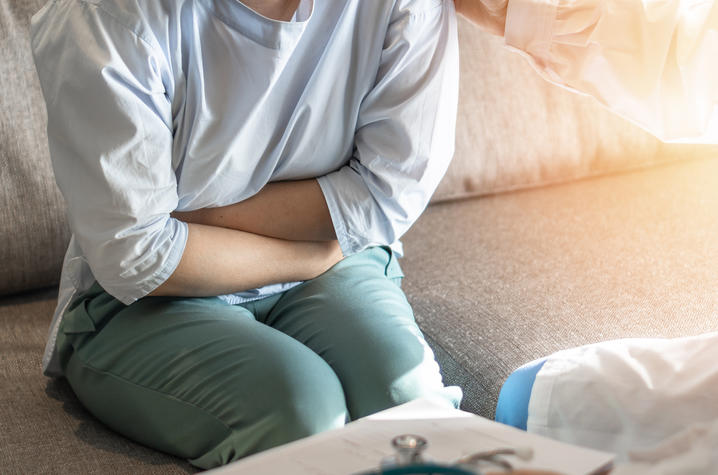Could Your Child's Symptoms Be Caused by Kidney Stones?

The University of Kentucky Public Relations and Strategic Communications Office provides a weekly health column available for use and reprint by news media. This week's column is by Campbell M. Grant, M.D., assistant professor of urology in the University of Kentucky College of Medicine.
LEXINGTON, Ky. (June 13, 2022) — It is estimated that one in 10 people will develop a kidney stone at some point in their lives, and even children and babies can develop kidney stones. Kids particularly may have a more difficult time expressing their symptoms, so it is important to know the signs, know when to get help, and how to avoid them in the future.
Kidney stones are hard masses formed in the kidneys usually made from an insoluble chemical compound. Some kidney stones are able to pass through the urinary tract without treatment. However, sometimes they can block a child’s urinary tract and may need treatment for removal.
Some signs that your child may be experiencing kidney stones are:
- pain in the back, belly or pelvis;
- nausea or vomiting;
- pain when urinating;
- frequent urge to urinate; and
- blood in urine.
If your child is experiencing these symptoms on a mild level, you can consider making an appointment with your primary care physician for treatment. But, if your child is experiencing severe pain or fevers, it is recommended to take them to the emergency department.
Once you realize that your child has a kidney stone, you can do a lot to prevent them in the future. First and foremost, the best thing you can do to prevent kidney stones is to drink plenty of water each day. Drinking enough water keeps urine diluted and helps flush away minerals that have the potential to form stones.
If your child keeps getting kidney stones, it may be a sign of an underlying issue. Some people are genetically predisposed to getting kidney stones, but other factors can also play into your likelihood of getting them as well, such as diet and exercise. In this case, medicines can help.
It is important to recognize the signs and get help promptly. In rare cases, if left untreated, kidney stones can block the ureters and increase the risk of infection and put added strain on the kidneys.
As the state’s flagship, land-grant institution, the University of Kentucky exists to advance the Commonwealth. We do that by preparing the next generation of leaders — placing students at the heart of everything we do — and transforming the lives of Kentuckians through education, research and creative work, service and health care. We pride ourselves on being a catalyst for breakthroughs and a force for healing, a place where ingenuity unfolds. It's all made possible by our people — visionaries, disruptors and pioneers — who make up 200 academic programs, a $476.5 million research and development enterprise and a world-class medical center, all on one campus.




